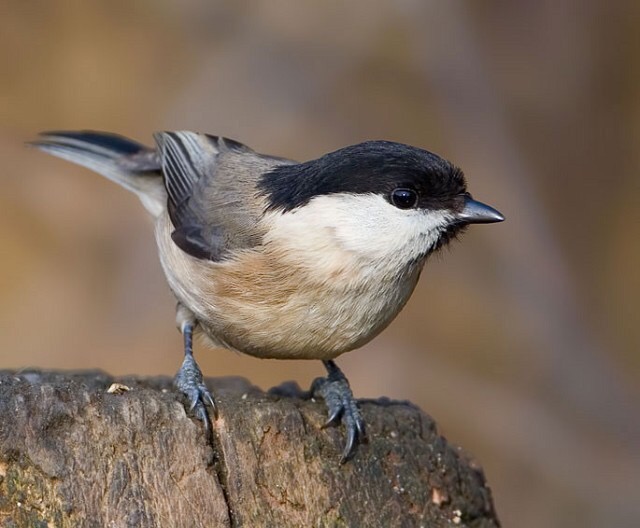Salford’s current housing boom isn’t just providing new city centre flats.
At Blackleach Country park, Salford City Council’s rangers and local volunteers have been building starter homes for feathered residents, including Britain’s most endangered bird.
The willow tit is the fastest declining bird in the UK and has seen its numbers fall by 82% between 1994 and 2011. Only 3,400 pairs remain in the whole country – but 10% of them are in Greater Manchester.
And now the country park team is doing all they can to encourage willlow tits and common terns to breed there by offering them the latest des res accommodation. The birds prefer willow and wet woodland which Blackleach has plenty of.
“For the willow tits, our volunteers have created starter homes using a technique developed by Mark Champion from the Lancashire Wildlife Trust. We fell selected willow trees leaving a stump about one metre high and cut into the top of the stump to encourage it to rot,” said Councillor Gena Merrett, assistant mayor for housing and environment.
“The birds dig into the rotting stump to create a new nest hole each year. We’ve chosen five different areas of woodland, with different amounts of cover and will monitor them over the next three years to see which location they prefer so we can supply more of the same. We hope by then we will have several pairs of breeding willow tits on site.”
But, like any developer knows, residents can be picky about their new homes – and it took five years of hard work by rangers and Bolton Conservation Volunteers to persuade common terns to raise young in the park.
Salford City Council ranger Richard Marshall said: “We spent five years clearing jungle-like vegetation from an island in the lake as terns only feel secure if they have a clear view of any incoming predators. They’re vicious and fearless and will gang up on any predators or humans who come too close to their nests. We put down special matting to prevent the vegetation growing back and laid down 15 tonnes of cockleshells to mimic seaside nesting sites.
“Other birds loved it but the terns didn’t approve. We think it was too close to the shoreline so we set to and built them a raft further off shore and they took to that very rapidly, giving us the first breeding pair in Salford. The current UK willow tit population is estimated at 3,400 pairs of which approximately 10% breed in Greater Manchester and Lancashire.
“Volunteers have helped to expand our estate to three rafts now and last year we had three breeding pairs with seven chicks use the rafts, as well as a pair of breeding Canada Geese and cormorants diving from it to fish. We’re just waiting for the terns to come back from wintering in west Africa and hope to hear the flap of tiny wings again this year.”
Common terns are a seabird, often known as sea swallows, which have moved inland as their traditional beach and spit nesting sites have been taken over for recreation.
They are on the RSPB’s amber list as there are just under 12,000 breeding pairs, half of which use just ten sites in the UK. The Salford birds have been ringed to indicate they were born in Salford and which year.







